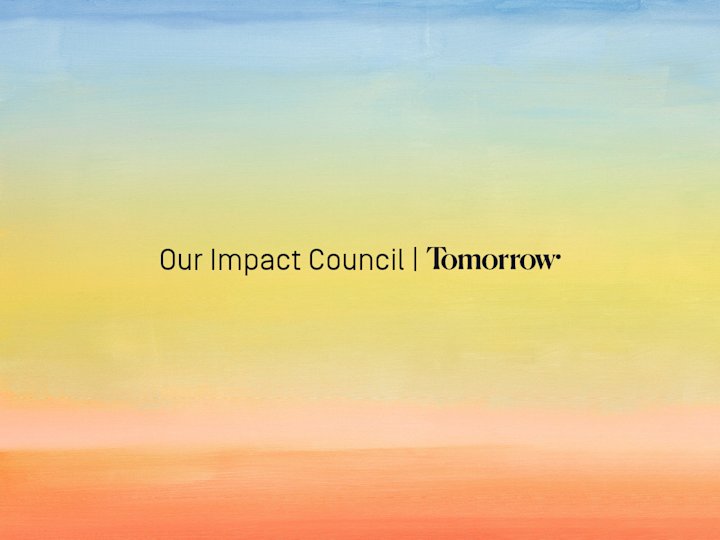How are impact-related decisions made at Tomorrow? Which criteria do we use and who is keeping an eye on things? One such authority is our Impact Council – which we would like to introduce you to briefly here.
Which supervisory bodies do we have here at Tomorrow?
Control is all well and good, but transparency is better. Especially when deciding which projects we should invest a part of our customer deposits in, i.e. your money. And also our future invests.
When it comes to making strategic decisions, our mission, values and the clear measurability of our impact are always at the fore. Our mission is centred around the Sustainable Development Goals of the UN and our investment criteria.
To make sure that we aren’t leaving any stone unturned or neglecting any aspects of these guidelines, we choose to turn to external sources for consultation, regulation and scrutiny purposes – because absolute transparency is something that’s firmly embedded in our values. And to help us with this task, we have our Advisory Board consisting of a total of nine executive members (our founders) and non-executive members (Patrick Sheehan, Jan Christoph Gras, Susanna Krüger, Tomer Strikowsky and Luis Hanemann). At the end of last year, they were joined by our colleague Ronald Gerber, who represents the team’s interests and brings our perspective to the table. The Advisory Board advises and regulates our management. To do this, they meet up six times a year and discuss the current corporate objectives and strategies. Our newest instance is our Impact Council.
New and fully focused on sustainability: our Impact Council
In autumn 2020, we also set up an Impact Council that is fully focused on sustainability at Tomorrow. This committee is made up of four experts from the realms of civil society and science, whose perspectives and expertise cover the many dimensions of sustainability. They meet up four times a year and, as our independent regulatory body, check Tomorrow’s sustainability performance at regular intervals. They also review whether we are achieving our ambitious goals and ensure that these goals and our mission are pursued on a day-to-day basis.
So why couldn’t we do this ourselves, you’re likely asking? Well, we probably could. But if you wish to approach the topic of sustainability seriously, it soon becomes apparent that the matter is extremely complex – and, like often the case in life, there isn’t always a straightforward answer to everything. We therefore value the critical questioning and different perspectives of our Impact Council to ensure that we are following a path that best serves as many stakeholders as possible and also the planet. And as well as the transparency that is so inherent to our mission, it also correlates with the zebra concept that we live and breathe as a company: that big goals can only be achieved in exchange and through collaboration, i.e., as part of a herd. We are continuously working on our own sustainable investment products and are consulting closely with the Impact Council to fulfil our ambitious sustainability goals here too.
Members of Tomorrow’s Impact Council
We are therefore delighted to have four fantastic members in the Impact Council who are accompanying us on our mission. And we’d like to introduce them to you today:
Andreas Neukirch
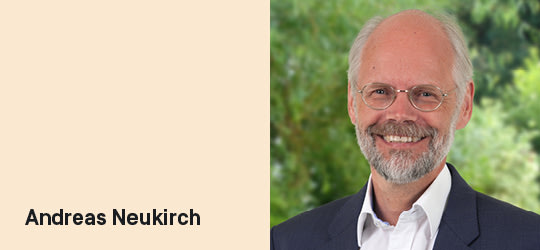
As the former CEO of GLS-Bank, Andreas Neukirch is our sustainable banking expert. Since 2010 he has been a professional honorary Member of the Advisory Board at Caritas Kreis Soest e.V. and is committed to improving the lives of others every day. In his role as Member of the Executive Board of energy cooperative Prokon Regenerative Energien eG, Andreas Neukirch deals with innovative technical solutions for a more sustainable tomorrow on a daily basis.
Focus: Sustainable financial markets and renewable energies
Kristina Lunz
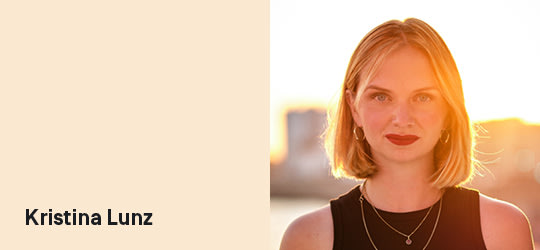
Credit: F. Castro
Kristina Lunz is co-founder and co-CEO of the Centre for Feminist Foreign Policy (CFFP). In February 2019, she made it onto Forbes Magazine’s ‘30 under 30’ list in Europe and three months later also onto their ‘30 under 30’ list for Germany, Austria and Switzerland. She is an Atlantik Brücke Young Leader, Ashoka Fellow, Gates Foundation SDGs Goalkeeper and BMW Foundation Responsible Leader. Between January 2019 and January 2020, Kristina was an external advisor in Germany’s Foreign Office, where she helped develop the feminist network Unidas for Federal Foreign Minister Heiko Maas. Prior to that, she was Gender & Coordination Officer of the United Nations Development Programme (UNDP) in Yangon, Myanmar, and worked for the local NGO Sisma Mujer in Bogotá, Colombia, where she supported the ‘Women, Peace and Security’ (WPS) agenda. She studied at institutions including the University College London (MSc Global Governance and Ethics) and the University of Oxford (MSc Global Governance and Diplomacy).
Focus: Feminism, social and educational justice
Prof. Dr Markus Beckmann (Prof. Dr. rer. pol.)
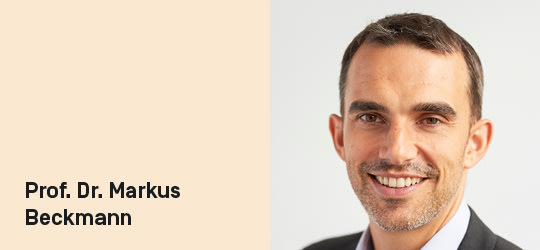
As Chair of Corporate Sustainability Management, Markus Beckmann has been researching and teaching at the University of Erlangen-Nuremberg (FAU) since 2012. From 2009 to 2012, he researched and taught as an assistant professor of social entrepreneurship at the Centre for Sustainability Management at the Leuphana University of Lüneburg where he was also founder and head of the Social Change Hub (SCHub), a platform that promotes social entrepreneurship among students. Markus Beckmann completed his doctoral degree in Business Ethics at Martin Luther University of Halle-Wittenberg in 2009. His dissertation received various awards including the Max Weber Award for Business Ethics. His research focuses on sustainability management and social entrepreneurship, as well as business ethics and corporate social responsibility.
Focus: Business ethics, sustainability management and social entrepreneurship
Susanna Krüger
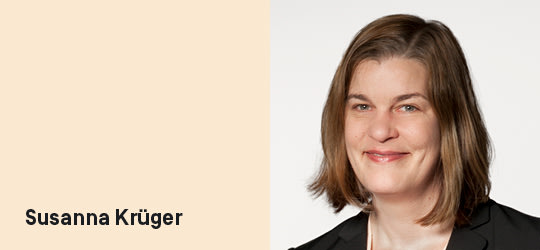
Since 2016, Susanna Krüger has been CEO and Member of the Board of Save the Children Germany, a member of the world’s largest independent children’s rights organisation. Before that she worked with goodroot, an advisory firm she founded to help companies and non-profit organisations improve the efficiency and effectiveness of their social programmes and investments. Susanna is interested in strategic philanthropy, sustainable investments and forward-looking development cooperation.
She studied history, philosophy and international law at the Free University in Berlin and also graduated with a master’s degree in Public Administration from Harvard, where she was a McCloy Scholar.
Focus: Strategic philanthropy, sustainable investments and forward-looking development cooperation
